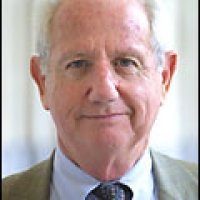The Wars of Afghanistan: Messianic Terrorism, Tribal Conflicts, and the Failures of Great Powers
As Ambassador and Special Envoy on Afghanistan from 1989 to 1992, Peter Tomsen has had close relationships with Afghan leaders and has dealt with senior Taliban, warlords, and religious leaders involved in the region's conflicts over the last two decades. In Tomsen's latest book entitled The Wars of Afghanistan: Messianic Terrorism, Tribal Conflicts, and the Failures of Great Powers, he draws on a rich trove of never-before-published material to shed new light on the American involvement in the long and continuing Afghan war.
The Wars of Afghanistan offers perspective on how Afghanistan's history as a "shatter zone" for foreign invaders and its tribal society have shaped the modern Afghan narrative. It brings to life the misinformed secret operations by foreign intelligence agencies, including the Soviet NKVD and KGB, the Pakistani ISI, and the CIA.
American policy makers, Tomsen argues, still do not understand Afghanistan; nor do they appreciate how the CIA's covert operations and the Pentagon's military strategy have strengthened extremism in the country. At this critical time, he shows how the U.S. and the coalition it leads can assist the region back to peace and stability.
Joining Tomsen on the panel is Ambassador Dennis Kux, Wilson Center senior scholar and Ambassador Omar Samad, Afghanistan's ambassador to France.
Robert Hathaway, director of the Wilson Center's Asia Program, will chair the event.
Peter Tomsen, former American special envoy to the Afghan resistance, is at present ambassador in residence at the University of Nebraska at Omaha. Additionally, he writes articles on Afghanistan and Central Asia, conducts research for a book he is preparing on Afghanistan, and lectures on international affairs to community groups around the country. Ambassador Tomsen was American ambassador to Armenia from 1995 to 1998, and was President George W. Bush's special envoy on Afghanistan with the rank of ambassador, 1989-1992. Prior to assuming his duties as ambassador to Armenia, Tomsen was principal deputy assistant secretary of state for East Asian and Pacific affairs in the Department of State, and under the Assistant Secretary, he was the senior manager of United States diplomacy in this area, from Burma to Micronesia, China to Australia. Formerly, Ambassador Tomsen has served as the United States deputy chief of mission in China, and in Moscow as first secretary in the American Embassy's political section. Ambassador Tomsen's foreign service career began in 1967, with an assignment in Thailand followed by a post to Vietnam's Mekong Delta, as a district senior advisor to an ARVN lieutenant colonel. Ambassador Tomsen subsequently served in India for five years, and in China for five years. After two years as political officer in the American Embassy in China, he was the director of the State Department's office of India, Nepal, Sri Lanka and Maldive Affairs, 1983-1985. Among the awards Ambassador Tomsen has received are three Presidential Meritorious Service Awards, one State Department Superior and two Meritorious Honor awards.
Dennis Kux is a Wilson Center senior scholar and a former Wilson Center fellow (1996-1997). Kux is a retired State Department South Asia specialist who has dealt with India and Pakistan for more than two decades, serving in Pakistan from 1957 to 1959 and 1969 to 1971. From 1986 to 1989, he was the U.S. ambassador to the Ivory Coast. Kux has authored numerous books including: India and Pakistan: The First Fifty Years; Pakistan: Flawed Not Failed State (Headline Series); The United States and Pakistan, 1947-2000: Disenchanted Allies; and India and the United States: Estranged Democracies, 1941-1991 which The New York Times called, "the definitive history of Indo-American relations."
Omar Samad is the former Afghan Ambassador to France (from 2009 until June 2011), and was also accredited to the Principaute de Monaco as of October 2010. Previously, Samad served as Afghanistan's Ambassador to Canada (2004-2009), while simultaneously serving as non-resident Afghan Ambassador to the Republic of Chile following the establishment of diplomatic relations in 2008. Previously, Samad served as the spokesperson for the Ministry of Foreign Affairs in Afghanistan, and as director general from 2002 to 2004. Born in Kabul in 1961, he attended primary and secondary school in Paris, London and in Kabul. He was forced to leave Afghanistan in 1979 following the Communist coup d'état, and settled in the United States where he helped promote the cause of freedom and democracy in Afghanistan. For several years, Samad worked in the field of Information Technology, while pursuing a second career in media, initially with ABC News and later as a freelance television producer and media commentator. In 1996, he launched the US-based Azadi Afghan Radio and website, and oversaw the Afghanistan Information Center based in Virginia. In 2001, he became an Afghanistan commentator for the international media, including CNN, BBC, Al Jazeera, FOX News and others. Samad holds a B.A in communications and international relations from American University and a M.A. in international relations from The Fletcher School.
Speakers

Former Foreign Service Officer and US Ambassador to Ivory Coast
Hosted By

History and Public Policy Program
A leader in making key foreign policy records accessible and fostering informed scholarship, analysis, and discussion on international affairs, past and present. Read more


Cold War International History Project
The Cold War International History Project supports the full and prompt release of historical materials by governments on all sides of the Cold War. Read more


Indo-Pacific Program
The Indo-Pacific Program promotes policy debate and intellectual discussions on US interests in the Asia-Pacific as well as political, economic, security, and social issues relating to the world’s most populous and economically dynamic region. Read more
